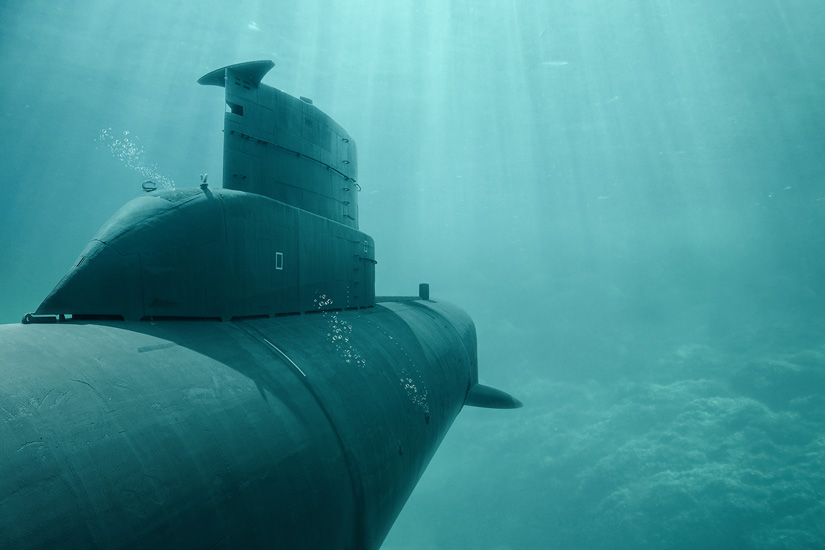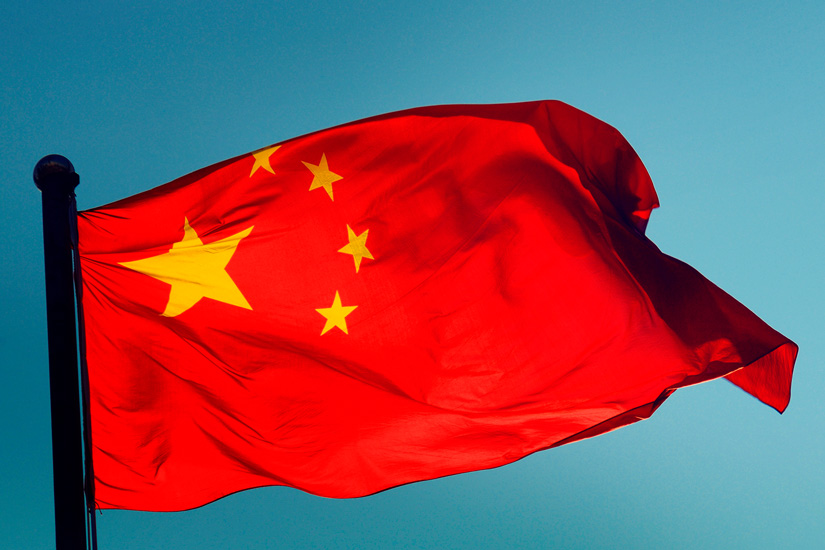AUKUS: “from out of the blue”
On the 15 September 2021, the leaders of Australia, the UK and United States announced the creation of an enhanced trilateral security partnership called “AUKUS”[1]. The agreement committed the parties to ‘significantly deepen cooperation on a range of security and defense capabilities’ to be achieved through ‘deeper integration of security and defense-related science, technology, industrial bases, and supply chains[2].’ They simultaneously announced the ‘first initiative’ in this program would be a UK-US commitment to provide Australia with a nuclear-powered submarine (SSN) flotilla. This put an end to Canberra’s existing contract with French supplier Naval Group, which had become increasingly unworkable and deemed unfit for Australia’s revised defence needs.
The shock cancellation of the French contract, with A$2bn already invested since 2016, caught Paris by surprise. Stung by the lack of prior high-level consultation and dismayed at the loss of the “contract of the century”, French President Emmanuel Macron is livid with Canberra, London, and Washington. Beijing was likewise caught flat-footed by the shock announcement, though has since expressed its displeasure at the trilateral agreement in no uncertain terms. Moreover, strategic commentators have been blindsided by the new agreement and have had to quickly grapple with its meaning and implications for Australia and the wider Indo-Pacific region.

What is “AUKUS”?
The AUKUS agreement has been widely misconstrued by the media as an “alliance” and this has filtered through to popular perceptions and, regrettably, some security analysts, who ought to be more discriminating. In the joint announcement of AUKUS the three heads of government used similar but slightly distinct terminology to describe it:[3]
PM SCOTT MORRISON: “an enhanced trilateral security partnership”
PM BORIS JOHNSON: “a new trilateral defense partnership”
PRESIDENT JOE BIDEN: “a new phase of the trilateral security cooperation”
None of these employ the term “alliance” to characterise the trilateral agreement. This is judicious since it sits below the threshold of a bona fide military alliance, which is commonly understood by experts as: ‘a formal association of states for the use (or non-use) of military force, in specified circumstances, against states outside their own membership’[4]. Most significant is the absence of a formal mutual defence treaty committing the parties to military assistance in the event of conflict contingencies - the usual sine qua non of a genuine military alliance (like NATO’s Article V). Since defence technological collaboration was the centrepiece of the AUKUS unveiling, it could be dubbed a “defence pact”, though only in the technological sense, rather than the conventional understanding of a mutual defence treaty.
Instead, the AUKUS agreement is reflective of the increasing proliferation of such “non-alliance” alignments, exemplified by a range of “strategic partnerships” and security-focused “minilaterals”, such as the Trilateral Strategic Dialogue (TSD) and Quad. It is simply one more way of codifying and formalising the “special relationship” that already exists among these three Anglosphere countries, based on shared history, culture, values and interests. The AUKUS countries enjoy an unmatched level of mutual trust in their relations, and this extends to the most sensitive areas of national security, notably intelligence sharing through the “Five Eyes” partnership and evidently sharing the most sensitive high-end defence technologies.
How does Australia benefit from AUKUS?
Each of the three AUKUS partners has ostensibly different motives for signing the agreement aimed at advancing their national interests. For the US, it signals concrete action toward demonstrating renewed American commitment to its allies after they were mishandled by President Donald Trump and a return to the Indo-Pacific region in strength after two decades of strategic distraction in the Middle East[5]. For a post-Brexit Britain it is a way of tangibly demonstrating its strategic relevance (“Global Britain”) and its newfound ‘tilt’ toward the Indo-Pacific region[6].
For Australia itself the benefits of AUKUS should prove to be substantial and are manifold. As Foreign Minister Marise Payne notes, ‘This new partnership is indeed a major step in cooperation that will benefit Australia’s future security’[7].
First is the evident symbolism of AUKUS. For a middle power like Australia to gain a seat at the top table with a great power UK and a superpower US is a serious diplomatic achievement for the Morrison Government[8]. Having “great and powerful friends” is a significant asset for Australia to the extent that its national security has always more than partially depended upon them[9]. AUKUS serves to embed the American and British strategic presence ever more firmly in the Southern Pacific. Even without a trilateral alliance treaty, AUKUS lends credibility to expectations of mutual support among the three parties, perhaps even in the direst conflict scenarios. This buttresses existing reassurance for Australia through the ANZUS alliance, and Five Power Defence Arrangement (FPDA), which includes the UK (as well as close Strategic Partner; Singapore, treaty-partner; New Zealand, and Malaysia). With powerful backers like the US and UK, a hostile power would have to factor such support into any calculus of a potential attack on Australia, even absent a formal trilateral treaty document. This, at least, is the unspoken aspiration of the PM Morrison when he describes it as a “forever partnership”.
Second comes the actual submarine deal itself; the US and UK commitment to facilitate Australia’s acquisition of a nuclear-propelled fleet of at least eight boats to replace its aging Collins class conventionally powered flotilla. Though a 12–18-month study is being undertaken to determine the exact specifications of the future Australian vessel design, the US Virginia class and UK Astute class are considered to most closely meet Australian specifications. What can be said for certain is that nuclear-powered submarines, armed with a mix of cruise-missiles and torpedoes and capable of ranging over the vast expanses of the Pacific Ocean for extended periods, would greatly enhance Australian deterrent capabilities. Importantly, the new submarine proposal has bipartisan support in Australia itself. This planned acquisition also needs to be seen in light of Australia’s separate announcement of a range of new weapons including seaborne Tomahawk cruise missiles, airborne joint air-to-surface standoff missiles and long-range anti-ship missiles and land-based precision strike guided missiles (and approx. A$1bn in funding for an indigenous Precision Strike Missile program (PrSM))[10]. The AUKUS agreement and these national defence procurements are part of Australia’s plan to modernise and upgrade its defensive capabilities, as outlined in the 2020 Defence Strategic Update and 2020 Force Structure Plan[11].

Third is the extremely significant trilateral commitment to cooperate on a range of emerging technologies including: ‘cyber capabilities, artificial intelligence, quantum technologies, and additional undersea capabilities’[12]. Each of the partners is acutely aware of the military-technological competition underway, especially in the Indo-Pacific, to gain lead advantages in what are known as Emerging Disruptive Technologies (EDT). These will be crucial inputs into the strategic contest unfolding in the Indo-Pacific. As Paul Kelly points out, ‘These are decisive gains in a world where future conflict will be heavily high-tech’[13]. There is simply no way for a middle power country like Australia to bear the immense research and development costs or optimise its manufacturing base independently to retain an “edge” in such capabilities. AUKUS, by granting cooperative access to leading American and British advancements in these domains, is thus a major benefit to Australia and may stimulate its own indigenous capacity through knowledge and technology sharing.
Fourth, AUKUS adds a new and potent minilateral institutional component to the regional security architecture at Canberra’s disposal. Alongside the Trilateral Strategic Dialogue (TSD) with Japan and the Quad (with the addition of India), such “minilaterals” are crucial diplomatic instruments for Canberra to exercise its influence regionally. These build upon and intersect with a wide range of bilateral Strategic Partnerships that Canberra has forged with capable and like-minded countries, such as Japan, India, and Singapore, which again add another layer to the regional security architecture[14]. This does not mean that Canberra is any less committed to multilateral security dialogue organisations such as the ASEAN suite of institutions – East Asia Summit (EAS) and ASEAN Regional Forum (ARF) – but these serve a different purpose from focused minilaterals like AUKUS and the above. Inclusive and mainly pan-regional institutions like the EAS and ARF are deemed to suffer from a lack of consensus and a lack of effectiveness in addressing pressing security challenges. In other words, AUKUS represents another useful “action shop”, rather than another “talk shop”.
What are the drawbacks of AUKUS?
Though the AUKUS agreement promises to deliver significant security and defence benefits and multiply trilateral influence in the Indo-Pacific region, some serious drawbacks (opportunity costs) also need to be considered. These issues have sparked vociferous debates in Australia among the political class and strategic commentariat.
The first of these is technical. The proposition to acquire Anglo-American defence technology whilst building the boats in South Australia is a highly complex undertaking. Such monumental and unprecedented defence projects are never smooth sailing, if Australia’s experience with the Collins Class, and the initial French program are anything to go by. Australia will need to meticulously manage the procurement process and establish the necessary nuclear and naval expertise that is to date practically non-existent in order to successfully realise the project, even if the technical aspects of collaboration are surmounted[15]. Perhaps more troubling is the extended procurement timeframe envisaged – at least two decades until actual deployment. This extraordinarily long lead time means that Australia will not be able to deploy the necessary capability until the 2040s[16]. By advertising such futuristic plans however, Canberra has already stirred opposition in the region (see below). In the interim it will struggle to retrofit is aging Collins vessels and investigate other expedient measures to cover this “capability gap”. One solution mooted by analysts is the possibility of leasing American or British boats during the procurement phase, or “home-porting” UK or US submarine assets in Australia.
Secondly, some domestic criticism in Australia has focused on whether ever deeper engagement – dependency even – with the US compromises Australian national sovereignty (echoing earlier reservations on ANZUS by former Liberal PM Malcolm Fraser)[17]. Furthermore, as witnessed in Afghanistan, US credibility as a security guarantor has taken a beating. Former Labor PM Paul Keating has been the most vociferous critic along these lines. What is more, Keating has argued that Australia is wedding itself to a fading “Anglosphere” club that better represents Australia’s past than its Asian future[18]. These criticisms are worth considering, though can be easily answered. First, unless Australia was to totally reconfigure its national defence priorities, including at least doubling its defence budget as strategic commentator Hugh White has advocated in How to Defend Australia (2019), enhanced alliances and partnerships like AUKUS are a “cheaper” way to provide for its security[19]. Second, the “Anglosphere” critique misses the point that Australia is deeply engaged with Asian partners including its bilateral strategic partnerships with Japan, India, and Singapore, to name the most prominent (as Marise Payne has argued)[20]. Lastly, the US has a far greater stake in protecting treaty allies such as Australia in the pivotal Indo-Pacific region than it ever did in “nation-building” in Afghanistan. The Afghanistan case is simply not transferable to this dissimilar context.
The second drawback is the “collateral damage” caused to Franco-Australian relations by the abrupt withdrawal from the A$90 billion Naval Group contract (which could cost Australia up to A$400ml to terminate). The fallout has seen Paris recall its ambassadors from both Canberra and Washington and French Foreign Minister Jean-Yves Le Drian pronounced AUKUS as a “stab in the back”[21]. Former Labor PM Kevin Rudd even took the unusual step of penning a piece for the French newspaper Le Monde in which he also deplored the fashion in which Canberra broke the news to Paris[22]. Yet, many Australian commentators have concentrated on the fact that the central nuclear submarine component delivered by AUKUS is a far better outcome for Australian strategic interests, despite the rupture with France[23]. Though Canberra and Paris have a strategic partnership, France remains a second-tier player in the Indo-Pacific and the level of alignment and mutual trust between Canberra and Paris pales in comparison to that of the Anglo-American compact. It was a natural impulse for Australia to turn to its US ally and former “motherland”, the UK, as these countries are seen as “family” in the words of former PM Tony Abbott[24]. Moreover, France simply cannot match the military capabilities of the US, let alone the combined capabilities of the US and the UK, despite possessing a solid foothold in the Indo-Pacific. The cancelation of a national French arms deal ought not to be a matter for EU concern specifically, though it has sparked discussion on the behavior of the US as a (European) ally. Australian observers are hopeful that France’s indignation is tactical rhetoric and will subside, and it will not seek further retribution through, for example, stymying trade deals between Australia and the EU through its veto power.
The third negative impact of the AUKUS announcement has been its effect on the already strained relationship with China, Australia’s leading trade partner. Beijing has used its state media and diplomatic “wolf warriors” to denounce the AUKUS agreement and intimidate Australia. Victor Gao (a semi-official Communist Party mouthpiece) controversially said that Australia will face a nuclear response, should AUKUS ever combine to threaten China militarily[25]. Some of the logic behind the denunciations is rather questionable, however. Lambasting Australia for fuelling a regional arms race is rather tenuous given that the Chinese defence budget has grown from an estimated US$131bn in 2014 to over US$200bn in 2021, and China itself deploys a fleet of nuclear-powered (SSN) and nuclear-armed submarines (SSSBN)[26]. Ultimately, Beijing has been unreflective on the issue of whether its own assertive actions and belligerent rhetoric over “war” – quite aside from its economic coercion towards Australia – might have played a role in bringing about AUKUS (and the Quad). As Richard Maude argues, ‘There are no signs Xi intends to reflect on the role of China’s own behaviour in feeding insecurity in the region, or to adjust course[27].’ Nevertheless, with tensions mounting in the Taiwan Strait, closer defence engagement with the US might curb any prospect of Australia remaining aloof from a potential Sino-US clash, a prospect also raised by Teresa May in regard to the UK, and which Beijing has been quick to point out[28].

Summary
The reception of the AUKUS announcement across the remainder of Indo-Pacific has been mixed. Japan is supportive, as it is clearly a beneficial step in improving the overall strategic situation by expanding allied capabilities and engagement in the region. India and Singapore, both relatively closely aligned strategic partners of Australia have also been relatively positive towards AUKUS, as has the Philippines. Unofficially, several other Southeast Asian states, including Vietnam, are likely to view it favourably, though Malaysia, Thailand and Indonesia have expressed reservations, apparently concerned about the Chinese response described above. Claims by such parties that the submarine procurement will trigger a regional arms race seem rather overblown since many states are already investing in new capabilities and military modernisation, in several cases due to alarm at China’s maritime actions, especially in the South China Sea. In any case, AUKUS in no way precludes continued closer cooperation between Australia and these countries, nor its participation in in ASEAN-centric regional dialogue fora. If anything, Australia may appear a more powerful and influential player in this context with AUKUS behind it.
On balance the Australian government appears to view the benefits as outweighing the costs, since many of the risks outlined above are already factors in its current calculations, nuclear subs or not. Though AUKUS is still in its infancy and developments are moving at a rapid pace, it has committed the three countries to tangible security collaboration and is a ‘watershed moment in Australia’s long adjustment to an Indo-Pacific region being transformed by China’s power and assertiveness’ according to Richard Maude[29]. At the very least, as a result of AUKUS, armed with superior weapons platforms, Australia will be better prepared should the worst-case scenario eventuate. Canberra just has to hope such a scenario doesn’t occur before 2040!
(2021/11/15)
Notes
- 1 Prime Minister of Australia Scott Morrison; Prime Minister of the United Kingdom Boris Johnson; President of the United States of America Joseph R. Biden (16 Sept. 2021). "Joint Leaders Statement on AUKUS". Prime Minister of Australia (Press release). Retrieved 25 Sept. 2021.
- 2 Prime Minister of Australia Scott Morrison; Prime Minister of the United Kingdom Boris Johnson; President of the United States of America Joseph R. Biden (16 Sept. 2021). "Joint Leaders Statement on AUKUS". Prime Minister of Australia (Press release). Retrieved 25 Sept. 2021.
- 3 The White House, ‘Remarks by President Biden, Prime Minister Morrison of Australia, and Prime Minister Johnson of the United Kingdom Announcing the Creation of AUKUS’, 15 Sept. 2021.
- 4 Glenn Snyder, Alliance Politics, (Cornell University Press, 2007), p. 4.
- 5 Naomi Konda et al. Report―Balance Sheet of US Allies: Comparative Study between Asia and Europe, Sasakawa Peace Foundation, March 2019.
- 6 Rahul Roy-Chaudhury, ‘Understanding the UK's ‘tilt’ towards the Indo-Pacific’, Analysis, IISS, 15 Apr. 2021.
- 7 Marise Payne, ‘Paul Keating is wrong, AUKUS doesn’t turn Australia’s back on Asia’, Sydney Morning Herald, 27 Sept. 2021.
- 8 Greg Sheridan, ‘Nuclear subs will arrive much too late to help us in conflict’, Weekend Australian, 18-19 Sept. 2021.
- 9 Allan Gyngell. Fear of Abandonment: Australia in the World since 1942. (La Trobe University Press, 2017).
- 10 Prime Minister, The Hon Scott Morrison MP, Minister for Foreign Affairs, Senator the Hon Marise Payne, ‘Joint media statement: Australia to pursue nuclear-powered submarines through new trilateral enhanced security partnership’, 16 Sept. 2021 Canberra.
- 11 Australian Department of Defence, 2020 Defence Strategic Update, Canberra.
- 12 Prime Minister of Australia Scott Morrison; Prime Minister of the United Kingdom Boris Johnson; President of the United States of America Joseph R. Biden (16 Sept. 2021). "Joint Leaders Statement on AUKUS". Prime Minister of Australia (Press release). Retrieved 25 Sept. 2021.
- 13 Paul Kelly, ‘The biggest strategy shift of our lifetime’, 18-19 Sept. 2021, The Weekend Australian.
- 14 Thomas Wilkins, ‘The Japan choice: reconsidering the risks and opportunities of the “Special Relationship” for Australia’, International Relations of the Asia-Pacific vol. 16, no. 3 (2016), pp. 477-520.
- 15 Marcus Hellyer, ‘Submarines that don’t need refuelling still require a nuclear industry’, 30 Sept. 2021, The Strategist, ASPI.
- 16 Greg Sheridan, ‘Nuclear subs will arrive much too late to help us in conflict’, Weekend Australian, 18-19 Sept. 2021.
- 17 Malcolm Fraser & Cain Roberts. Dangerous Allies, (Melbourne Univ. Publishing, 2016).
- 18 ‘Paul Keating lashes Morrison government and Labor opposition over AUKUS arrangement’, ABC Radio, 23 Sept. 2021.
- 19 Hugh White, How to Defend Australia, (La Trobe University Press, 2019).
- 20 Marise Payne, ‘Paul Keating is wrong, AUKUS doesn’t turn Australia’s back on Asia’, Sydney Morning Herald, 27 Sept. 2021.
- 21 Eglantine Staunton, ‘AUKUS: France’s strategic outcry’, 24 Sept. 2021, The Interpreter, Lowy Institute.
- 22 Kevin Rudd, « La décision de Canberra sur les sous-marins aggrave les tensions stratégiques en Asie du Sud-Est » : l’avertissement de Kevin Rudd, ancien premier ministre australien, Le Monde, 21 Sept. 2021.
- 23 Paul Kelly, ‘The biggest strategy shift of our lifetime’, 18-19 Sept. 2021, The Weekend Australian.
- 24 ‘Aukus alliance & Douglas on Cambridge’, The Week in 60 Minutes, SpectatorTV, 24 Sept. 2021.
- 25 Gerard Henderson, ‘Subs pact makes us a target for nuclear tack? Gao figure’ The Weekend Australian, 18-19 Sept. 2021.
- 26 Yew Lun Tian, ‘China defence spending gets mild boost amid economic caution’, 3 May 2021. Reuters.
- 27 Richard Maude ‘Australia’s AUKUS Gambit’, The Asia Society, 16 Sept. 2021.
- 28 ‘Theresa May questions whether Aukus pact could lead to war over Taiwan’, The Guardian, 17 Sept. 2021.
- 29 Richard Maude ‘Australia’s AUKUS Gambit’, The Asia Society, 16 Sept. 2021.

